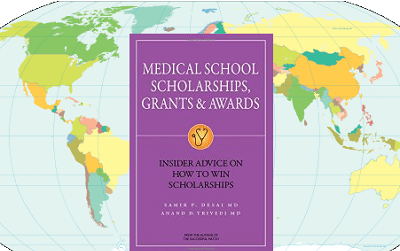Doctors Without Borders/Médecins Sans Frontières (MSF) is an international medical humanitarian organization created by doctors and journalists in France in 1971. With offices in 19 countries around the world MSF recruits both MDs and non-medical aid workers to provide assistance in nearly 60 countries.
The role of MSF is to provide independent, impartial assistance to individuals whose survival is threatened by violence, neglect, or catastrophe, primarily due to armed conflict, epidemics, malnutrition, exclusion from health care, or natural disasters. With a history of calling attention to neglected crises and advocating for improved medical, and working on the humanitarian principles of medical ethics and impartiality treatments, MSF was awarded the Nobel Peace Prize in 1999.
Nearly 27,000 doctors, nurses, logisticians, water-and-sanitation experts, administrators, and other qualified professionals serve as MSF aid workers to provide medical care in international teams comprising local staff and colleagues from around the world. General terms of service run nine to 12 months, though there are shorter commitments for certain specialties, and MDs at all stages of their careers have joined MSF.
What Kind of MDs Join MSF?
“We tend to attract both professionals who have just completed their residency and have the opportunity and time to give to MSF,” says MSF aid worker and recruiter Melissa Bieri, “as well as semi-retired or recently retired physicians who have the skills and experience that is extremely valuable to MSF. We also get those mid-career MDs who have maybe had a private practice and are looking to give back to communities in need.”
Bieri says MSF doesn’t prefer one group over another, but rather looks for individuals who have the right experience, knowledge, and specific qualities required for field work.
“We are looking for MDs and health workers who are flexible and willing to work without the resources they are accustomed to in the U.S. They may find themselves in the field without very basic diagnostic equipment like an X-ray machine, and will need to rely on their clinical skills.
“We are also seeking candidates who have been pushed out of their comfort zone,” Bieri continues, “whether through personal travel or through international work – and who have management or teaching experience, because much of their work in the field will be in supervisory or teaching roles. Generally speaking, we find that the most successful candidates are those that are open to living and working with colleagues from many different cultures.”
Critical Needs for MSF
Bieri says MSF has an ongoing need for numerous professionals like MDs, nurses, mental health specialists, but that there are also more critical needs to address. High on that list is a need for midwives who have had experience with both complicated and normal deliveries.
“As for MDs, we are looking for those with training in pediatrics, infectious disease, tropical medicine, or HIV and TB, and those who have worked with vulnerable patient populations in the past,” she says. “To staff our surgical projects, we need general and orthopedic surgeons as well as anesthesiologists and CRNAs. We are also looking for epidemiologists, lab technicians, and pharmacists.”
Bieri says MSF generally sees more women then men applying to work in the field. And overwhelmingly, applicants are professionals who want to give back.
“Applicants often tell us they went into medicine with the idea that they would work for MSF and that they are now trying to fulfill that dream.”
Bieri urges potential candidate who might be considering working with MSF to apply.
“They won’t regret it.
“But, before applying, I would encourage applicants to get the relevant experience, make sure they know what it’s like to live or work outside of their comfort zone, be ready to learn more then they will teach,” she says, “and to set realistic expectations for themselves and for their experience in the field.”
MSF is not a commitment to be entered into lightly. MSF workers are on the frontline of situations that threaten civilian lives around the world, as well as ones that put their own lives in danger as well. In December 2011, two MSF workers were killed in Somalia. These dangers constantly challenge MSF to maintain its mission.
“MSF takes the security of our programs and of our staff and patients very seriously,” Bieri emphasizes. “For the most part, our teams in the field are able to access people in need, including in conflict areas. Our complete independence, neutrality, and impartiality—and resulting acceptance by warring parties—normally provide us with security. But of course there are no iron-clad security guarantees.
“In the case of Somalia, after the tragic deaths of our two colleagues, MSF was forced to end all activities in the Hodan district of the capital, including the closure of two separate 120-bed medical facilities for the treatment of malnutrition, measles, and cholera,” Bieri explains, “because the security of our staff and patients could not be guaranteed. The closure effectively reduced the assistance MSF is providing in Mogadishu by half. So the price of a serious security incident is paid by the people in need of essential medical assistance. This is the ultimate, tragic, consequence – people going without lifesaving aid.”
MSF’s medical activities are dependent upon respect for personnel, patients, and medical facilities. Where these conditions prevail, MSF remains committed to continuing its activities.
Series on International Health Programs
Next: International Health Work What draws physicians to pursue international health work and global health care programs.
Why a Career in Global Health? A professor and author advises med students to follow their passion, and there will be a way to engage in global health work.
Global Health Programs For MDs or medical students exploring global health programs, there are a variety of adjustments that must be made.
Peace Corps For many volunteers, Peace Corps offers a glimpse into global health care issues.
Peace Corps and Medical School A fourth-year medical student shares how her Peace Corps service defined her medical school experience.
Back: Is Peace Corps Right for You? A Peace Corps specialist talks about skills, service, and volunteers interested in global health care.
Topics #Doctors Without Borders #global health #global md #global medicine #international MD #international medicine #Médecins Sans Frontières #MSF


